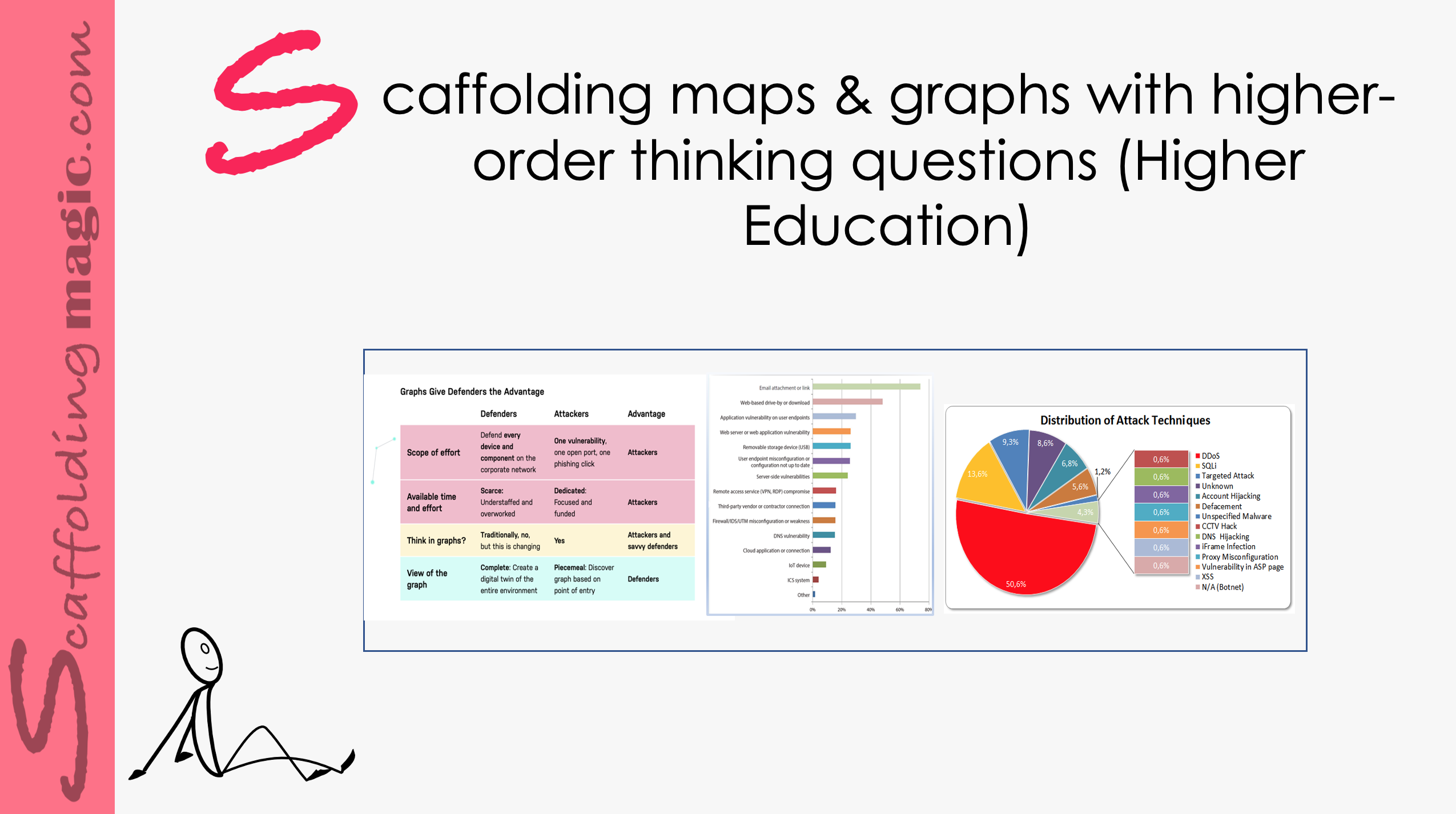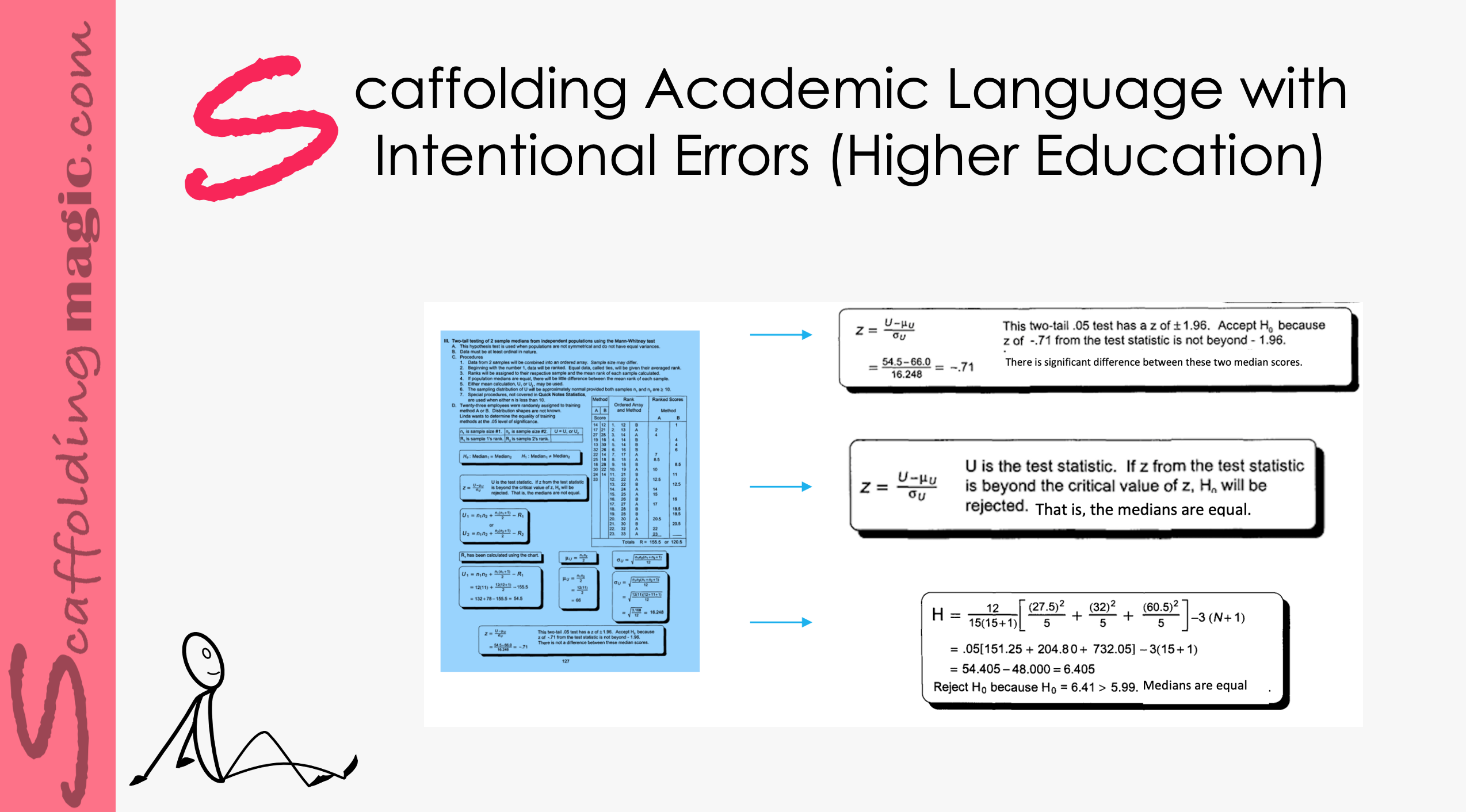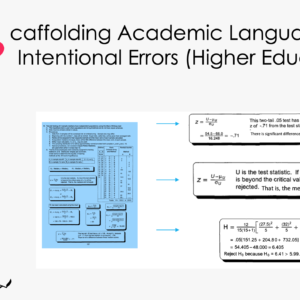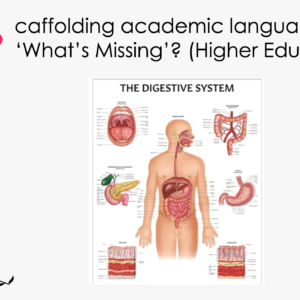Higher-order level questions – those that elicit deeper thinking – help students to stretch their thinking and engage their curiosity, their reasoning ability, their creativity, and independence. These questions encourage students to open their minds, they offer opportunities to produce original thinking.
Scaffolding Maps and Graphs with Higher-Order Level Questions (Higher Education)
$5.00
Higher-order level questions – those that elicit deeper thinking – help students to stretch their thinking and engage their curiosity, their reasoning ability, their creativity, and independence. These questions encourage students to open their minds, they offer opportunities to produce original thinking.
Related products
-
Higher Education ScaffoldsQuick View
Scaffolding Academic Language – through errors (higher education)
$5.00 Add to cartRated 0 out of 5 - Quick View
-
Higher Education ScaffoldsQuick View
Scaffolding by Enriching the Sequencing Dynamic (Higher Education)
$5.00 Add to cartRated 0 out of 5 -
Higher Education ScaffoldsQuick View
Scaffolding Academic Language with ‘What’s Missing?’ (Higher Education)
$5.00 Add to cartRated 0 out of 5
Scaffolding Academic Language – through errors (higher education)
The brain sparks and grows when we make mistakes – even if we are not aware of it – because it is a time of struggle; the brain is challenged, and so this is when it grows the most.* Errors need to be celebrated in our classroom; we need to help our students to embrace the effort they make in their studies and focus on mistakes and successes alike, and not only the outcomes.
The brain sparks and grows when we make mistakes – even if we are not aware of it – because it is a time of struggle; the brain is challenged, and so this is when it grows the most.* Errors need to be celebrated in our classroom; we need to help our students to embrace the effort they make in their studies and focus on mistakes and successes alike, and not only the outcomes.
Janice’s new product for testing
Now on to the short description with a pdf added to the product gallery
I want to see how this will show up, so I’ve added a new product to play with.
How do the images appear, etc.
Scaffolding by Enriching the Sequencing Dynamic (Higher Education)
Knowing the sequence of events in a text, story, video, laboratory experiment, sports competition, musical composition, preparation of art materials, etc. is an essential skill for students. This is an integral part of Pre-school and Lower-Primary school lessons, but it is often forgotten in higher grades. We need to intentionally give our students the opportunities to be able to recognise and express sequences, and we need to provide the phrases they can use to clarify the ordering of events.
Knowing the sequence of events in a text, story, video, laboratory experiment, sports competition, musical composition, preparation of art materials, etc. is an essential skill for students. This is an integral part of Pre-school and Lower-Primary school lessons, but it is often forgotten in higher grades. We need to intentionally give our students the opportunities to be able to recognise and express sequences, and we need to provide the phrases they can use to clarify the ordering of events.
Scaffolding Academic Language with ‘What’s Missing?’ (Higher Education)
This scaffold address the importance of academic language, which is so important that experts assert that the warehouse of words a person has stored away is directly connected to their quality of thinking: higher quality of words equals higher quality of thinking.** In this age of the Fourth Industrial Revolution, the quality of thinking our students reach in our classes, will be the difference between being qualified for jobs that technology is (still) not capable of performing, and watching the world from the sidelines.
This scaffold address the importance of academic language, which is so important that experts assert that the warehouse of words a person has stored away is directly connected to their quality of thinking: higher quality of words equals higher quality of thinking.** In this age of the Fourth Industrial Revolution, the quality of thinking our students reach in our classes, will be the difference between being qualified for jobs that technology is (still) not capable of performing, and watching the world from the sidelines.










